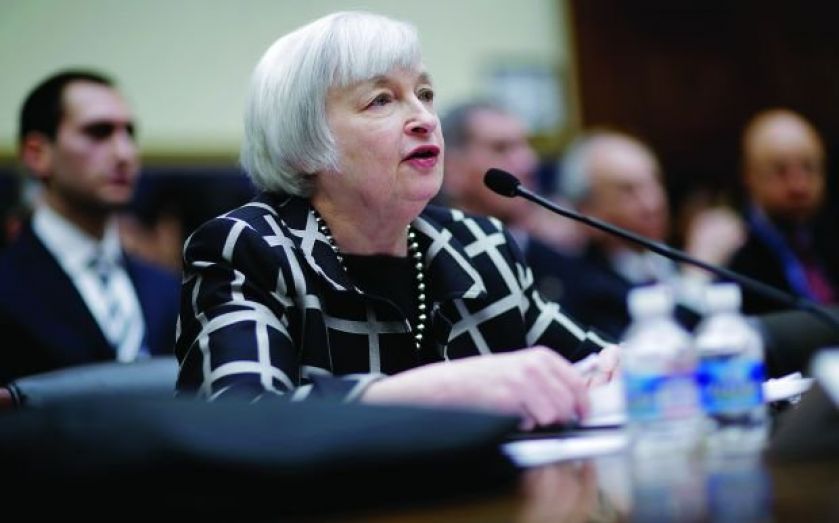| Updated:
Back to the 90s: What’s in store for 2015 markets

US equities will stay in bull mode, but the problems for Europe look likely to persist.
As we approach the end of 2014, many investors will be reviewing the performance of their portfolios, with a view to repositioning them ready for 2015. Here are my thoughts on where the major markets are heading.
LOOSE POLICY FOR LONGER
The US-led global recovery looks set to continue into 2015, with a lack of inflationary pressure keeping monetary policy loose, and supporting an equity bull market that has already seen America’s S&P 500 index triple from its March 2009 low. The Federal Reserve is likely to start normalising interest rates during the year, but I don’t expect the inflation picture to warrant the sort of aggressive action that would trigger a bear market.
If anything, problems elsewhere in the world could keep US policy looser for longer. A lack of wage inflation points to the existence of slack in developed economies, while excess capacity and the structural slowdown in China are keeping commodity prices under downward pressure. The environment reminds me of the 1990s, and I’m following a strategy that would have worked well over that decade: bullish on US equities, cautious on emerging markets and sceptical about Europe.
REWIND
The 1990s saw a prolonged period of disinflationary recovery, with Japan playing the role of China as a large industrial economy going ex-growth, and the fall of the Berlin Wall bringing excess capacity from the east onto global markets.
Against expectations at the time, US growth remained robust. The dollar was strong, and Alan Greenspan’s Fed provided enough liquidity to drive Wall Street to stratospheric levels. Those who think equities are too expensive today should note that the darlings of the 1990s, technology and healthcare stocks, are once again leading the market higher, and the fundamentals in both sectors are worthy of upward re-rating if the bull market continues.
BULLISH AMERICA
The US has been my favourite equity market for the last four years. A strengthening housing market and an end to fiscal tightening are underpinning solid expansion. The trend in corporate earnings has been consistently strong relative to other regions, particularly Europe.
The Fed is likely to be the first of the major central banks to raise interest rates, and this could trigger a period of volatility. But as long as the inflation picture remains benign, equity markets will come to understand that the Fed will be easing off the accelerator pedal, not slamming on the brakes. And a tighter Fed means dollar strength is likely to continue adding to returns.
CHINA SLOWS, EUROPE’S WOES
The picture elsewhere is mixed. The desynchronised nature of the global recovery will create opportunities. With China slowing, commodity-reliant emerging markets (and developed markets like Canada and Australia with large resource sectors) are likely to see poor equity returns and currency weakness. We are also cautious on UK equities in a global context. The resource sector has a large weight, and political uncertainty ahead of the general election is undermining the housing-led recovery.
Europe is in a bit of a muddle. Growth momentum has peaked, and several countries have moved into outright deflation. But some in Germany see quantitative easing as a bailout for profligate governments. If the unconventional measures currently in train prove ineffective, European Central Bank president Mario Draghi will need to buy sovereign bonds. A period of market stress may be necessary before policymakers overcome their reluctance. With eurosceptic political parties on the rise, time is not on Europe’s side. I am underweight European equities, and short the euro.
MORE ABENOMICS
Japan is the one place that feels very different when compared to 1990s, and its stock market is a top pick for us. As a commodity importer, Japan benefits from China’s slowdown, and its export sector is well-placed for a US-led upturn. The domestic economy is patchy, but the authorities are dead-set on doing whatever it takes to deliver strong and sustainable nominal growth. To this end, the Bank of Japan has stepped up its money printing programme. And we expect Prime Minister Shinzo Abe to either postpone the October 2015 sales tax rise, or offset it with a large supplementary budget. Progress on structural reforms is slow, but calling snap elections would give him four more years. Currency weakness is part of the plan, and we are short the yen.
INFLATION SUBDUED
I see equities continuing to offer the best opportunities for investors, but that’s not to say that there won’t be some tricky moments. Hardly a year went by in the 1990s without a crisis somewhere in the world.
Deflationary shocks from Europe or China have the power to unsettle the markets in 2015. But the Fed would adjust policy accordingly, and the US recovery would rumble on. Ultimately it is inflation, not deflation, that will end this bull market, and there are few signs of it today.